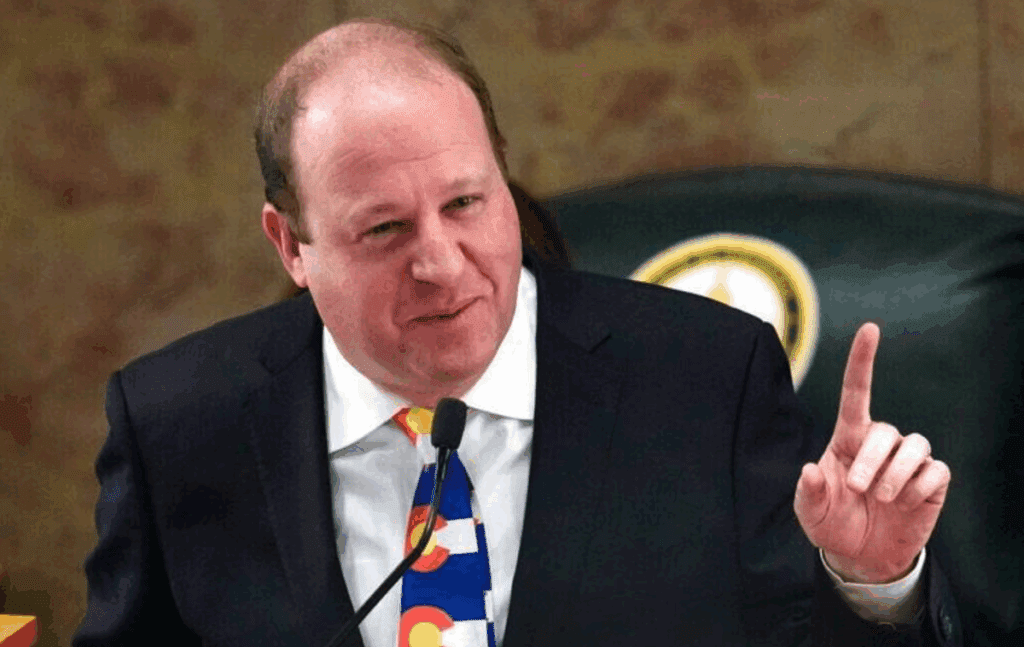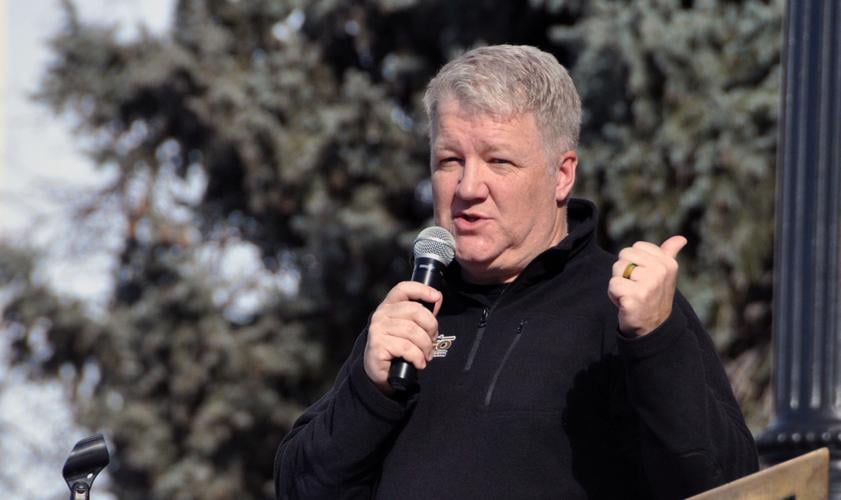Hickenlooper’s town hall on health care detours into Trump and hate
The only thing that could overshadow a conversation about health care hosted by Colorado Gov. John Hickenlooper: what to do about neo-Nazis and white supremacists.
Hickenlooper, aided by Lt. Gov. Donna Lynne and six members of his cabinet, met Wednesday with about 120 people at the Aurora Municipal Center. The event was billed as a town hall on healthcare, and it mostly focused on that. But Hickenlooper started off the evening with his thoughts on what happened last weekend in Charlottesville, Va., the site of a white supremacist protest that turned violent and later led to the death of a counter-protester.
“I can’t more strongly condemn this attack,” he began. The governor recounted that when he was a child, using the word “Nazi” was unthinkable – too close to the time of World War II, when the Nazis murdered six million Jews and countless others, including the disabled and minorities. “I can’t understand how young people can call themselves ‘Nazis’ so flippantly, the same way you would use any other adjective,” Hickenlooper said. “We have a lot of work to do,” but in the words of Martin Luther King Jr., “we must first live like brothers and sisters or perish like fools.”
Once they turned to health care, Lynne led much of Wednesday night’s discussions, borrowing on her 15 years of experience as a health insurance executive. “Health care has been a huge focus, and we’re looking at it at both the state and national level.”
She said that one-third of the state budget is spent on Medicaid and the children’s health care plan, with 60 percent of the funding from the federal government. But much of the conversation has lately focused on just who obtains Medicaid, she said, explaining that 42 percent of Coloradans on Medicaid are children and those younger than 18. Adults on Medicaid “are mostly hard-working, able bodied individuals with jobs but cannot afford health care” because of low wages. “We’re very proud of our Medicaid expansion,” Lynne added, which has helped the state reduce its uninsured rate from 16 percent in 2013 to about 7 percent today.
But the state of healthcare in Colorado is not coming up all roses. Lynne noted that when the state’s health exchange – Connect for Health Colorado – started in 2014, 10 insurance companies served exchange patients. Three have since dropped out, although Lynne insisted the state still offers broad choice for health insurance.
In the wake of the collapse of GOP efforts to repeal and/or replace the Affordable Care Act, Hickenlooper and Ohio Gov. John Kasich teamed up to lead a national bipartisan discussion on just how to improve the health care system and blasting Republicans for working behind closed doors without any effort at compromise.
“Health care is a right, not a privilege,” Hickenlooper said to warm applause. “But before you clap too loudly, we are spending more and more of our resources on health care. We as a society have to come together and make hard choices. Maybe not everyone will get what they want in health care, but the basics – freedom from life-threatening diseases, for example – that should go to each of us.”
Hickenlooper outlined his priorities: creating more stability in the private health insurance market, maintaining and expanding affordability, ensuring people can obtain private insurance, and ensuring that insurance isn’t so expensive that copays and deductibles drives people into bankruptcy.
One woman told the panel that she and her husband went bankrupt from medical bills prior to the Affordable Care Act. Now she pays $260 per month for her exchange-based insurance and receives $600 per month in subsidies.
But she fears for the future, and indicated that some people may choose suicide rather than bankrupt their families. “A lot of Coloradans are really frightened and depressed about what it may mean to us if the federal subsidies are cut off by [President] Trump in some late-night tweet” in a fit of pique. “This isn’t right. We have to come up with a solution.”
She commended Hickenlooper for working with Kasich: “Come up with a way to reassure people that we’re not going to let you die.”
“We won’t let people die,” Hickenlooper said. “I think there will be a battle, but that’s part of the urgency,” on how to control costs, because people’s lives depend on it.
Another woman asked Hickenlooper if his efforts with Kasich were gaining any traction in Washington. “And name names,” she added. Hickenlooper noted that Sen. Patty Murray, D-Wash., and Lamar Alexander, R-Tenn., who chairs the Senate’s health care committees, will hold hearings on health care next month. Hickenlooper has been invited to attend those hearings. “We will have the floor and the opportunity. Whether they will listen to us, we’ll see.”
In response to a question about how people can better understand how the health care system works, Hickenlooper managed a quick dig at Colorado Sen. Cory Gardner of Yuma, who held a series of town halls Tuesday along the Front Range on health care. These kinds of town halls are one way to keep the conversation going, Hickenlooper said, adding that Bennet and even Gardner are doing them, “at least now.”
“We’re making progress. We have to keep talking about this. I’m optimistic that Congress, with so much pressure from everyone, will be able to put down the swords and find compromise.”











